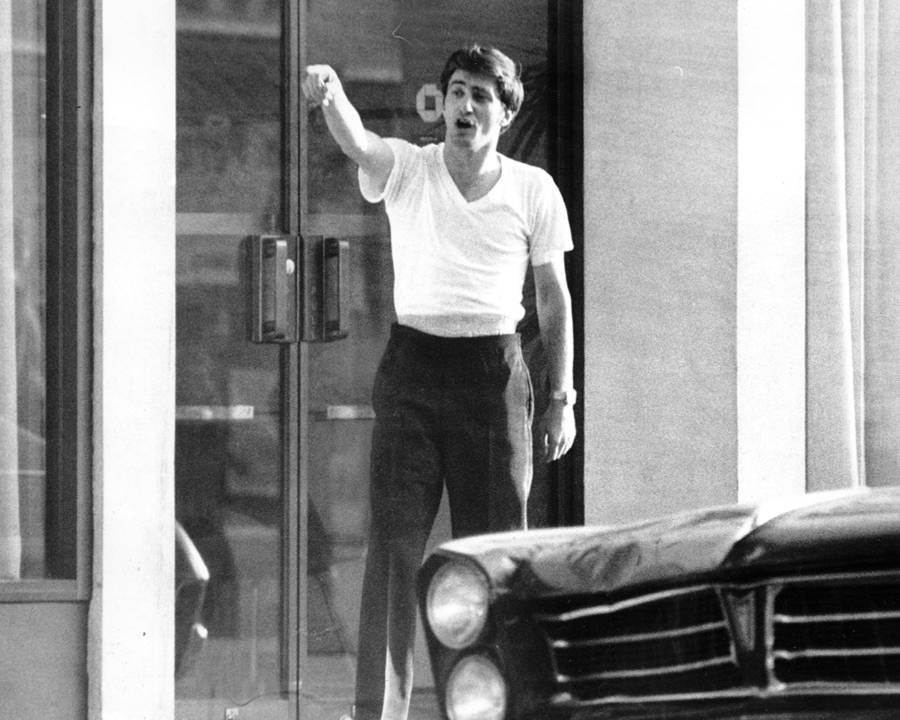 John Wojtowicz
John Wojtowicz
The infamous Brooklyn bank robbery of August 22, 1972, orchestrated by John Wojtowicz, remains one of the most bizarre and captivating true crime stories in American history. Far from a typical heist, Wojtowicz’s desperate act, immortalized in Sidney Lumet’s iconic film Dog Day Afternoon, was driven by love, desperation, and a desire to help his partner undergo gender reassignment surgery. However, the reality behind the cinematic portrayal is even more nuanced and complex, revealing a man caught in extraordinary circumstances. John Wojtowicz’s story is not just about a bank robbery gone wrong; it’s a poignant exploration of identity, love, and the chaotic events that transformed an ordinary man into a media sensation.
Who Was John Wojtowicz? The Man Behind the Heist
Born in 1945, John Wojtowicz was a New York City native who initially lived a seemingly conventional life. After graduating high school, he served in the Vietnam War, an experience that profoundly impacted him. Upon returning home, he began working at Chase Manhattan Bank and married Carmen Bifulco in 1967. However, beneath the surface of this conventional life, John Wojtowicz harbored a secret about his sexuality.
His experiences in the military, as recounted in an Esquire article, included a formative gay encounter during basic training. This, coupled with the trauma of surviving a rocket attack in Vietnam, contributed to a period of internal conflict and hidden identity upon his return. As his mother Terry described, the war “screwed him all up,” suggesting a significant shift in his personality and life trajectory post-service.
The facade of a heterosexual marriage couldn’t last. In 1969, John Wojtowicz separated from Carmen and embraced his sexuality, joining the Gay Activist Alliance and becoming involved in New York’s burgeoning gay scene. This period of self-discovery led him to Liz Eden, a trans woman who would become the central figure in the events that followed.
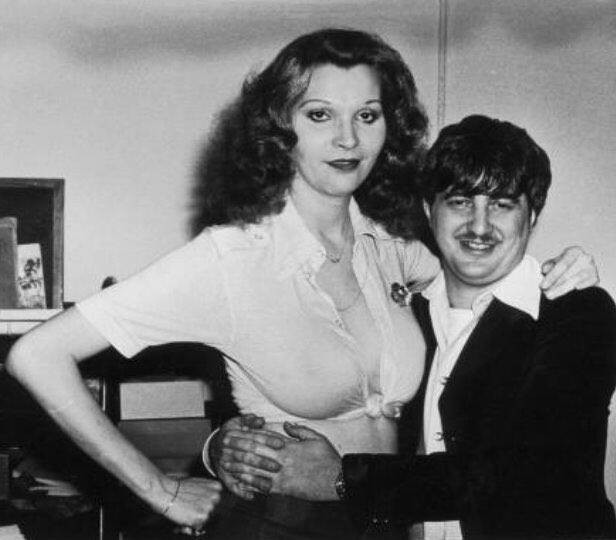 Elizabeth Eden And John Wojtowicz
Elizabeth Eden And John Wojtowicz
In 1971, John Wojtowicz met and fell in love with Elizabeth Eden. They had an unofficial wedding ceremony that same year, as legal same-sex marriage was not an option at the time. Eden deeply desired gender reassignment surgery, a procedure that John Wojtowicz initially resisted. However, after Eden attempted suicide, Wojtowicz’s perspective shifted dramatically. He became convinced that the surgery was crucial to Eden’s well-being and decided to take drastic measures to finance it – robbing a bank. This pivotal decision set in motion the events that would forever link John Wojtowicz to one of the most sensational bank robberies in history.
The Ill-Fated Bank Robbery and the Spectacle That Gripped New York
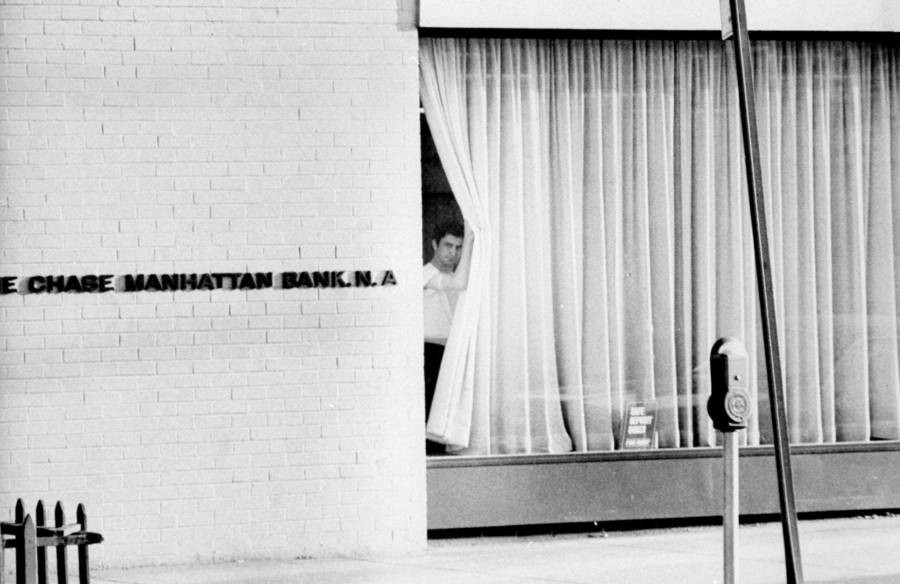 Dog Day Afternoon Robbery
Dog Day Afternoon Robbery
Driven by the urgent need to secure funds for Liz Eden’s gender reassignment surgery, John Wojtowicz began planning the bank robbery. While some accounts suggest an alternative motive – repaying debts to the Mafia – the prevailing narrative and Wojtowicz’s own statements emphasize his commitment to Eden’s surgery. He assembled a group of amateur accomplices: Bobby Westenberg and Salvatore Naturile, whom he had met in a gay bar. The trio’s lack of professionalism was evident from the outset.
On August 22, 1972, they embarked on a comically inept search for a bank to rob. Their first attempt ended in accidental gunfire when they dropped their shotgun, causing them to flee. The second bank was aborted when Westenberg recognized his mother’s friend. After a cinema trip to see The Godfather, they finally settled on a Chase Bank branch in Gravesend, Brooklyn. Entering the bank, John Wojtowicz handed a teller a note quoting The Godfather: “This is an offer you can’t refuse.” With that, the chaotic drama began.
Unbeknownst to Wojtowicz, the bank vault was nearly empty. Despite this, they managed to gather $38,000 in cash and $175,000 in traveler’s checks before an alarm was triggered, and the police descended upon the scene. John Wojtowicz and his accomplices took eight bank employees hostage, initiating a tense 14-hour standoff that transformed into a public spectacle.
The scene outside the bank quickly escalated into a media frenzy. FBI agents, police officers, journalists, and snipers positioned on rooftops converged on the location. Adding to the surreal atmosphere, an estimated 2,000 onlookers, including Wojtowicz’s mother, gathered in the summer heat, turning the bank robbery into a bizarre form of street theater. As one journalist on the scene recalled, “It was a full-blown show,” perfectly capturing the public’s morbid fascination with the unfolding events.
John Wojtowicz, seemingly embracing his unexpected role as ringleader, contributed to the theatrical atmosphere. He ordered pizza for the hostages, paying the delivery guy with stolen cash and even throwing bundles of money to the cheering crowd outside. Remarkably, the hostages developed a degree of empathy for Wojtowicz, perceiving him as more misguided than malicious. Teller Shirley Ball noted, “I realized that he was friendly… had a purpose for robbing the bank… he thought he would be in and out.”
However, as the hours stretched on, tensions mounted. Robert Kappstatter, a New York Daily News reporter, managed to reach Wojtowicz by phone, securing an unprecedented interview directly from the bank. The standoff reached its climax when the FBI agreed to a seemingly conciliatory plan: transporting Wojtowicz and Naturile (Westenberg had already fled) to Kennedy International Airport under the pretense of international escape. This was a ruse. Upon arrival at the airport, Salvatore Naturile was fatally shot by FBI agents, becoming the day’s sole casualty, and John Wojtowicz was apprehended.
The Legacy of the Heist and “Dog Day Afternoon”
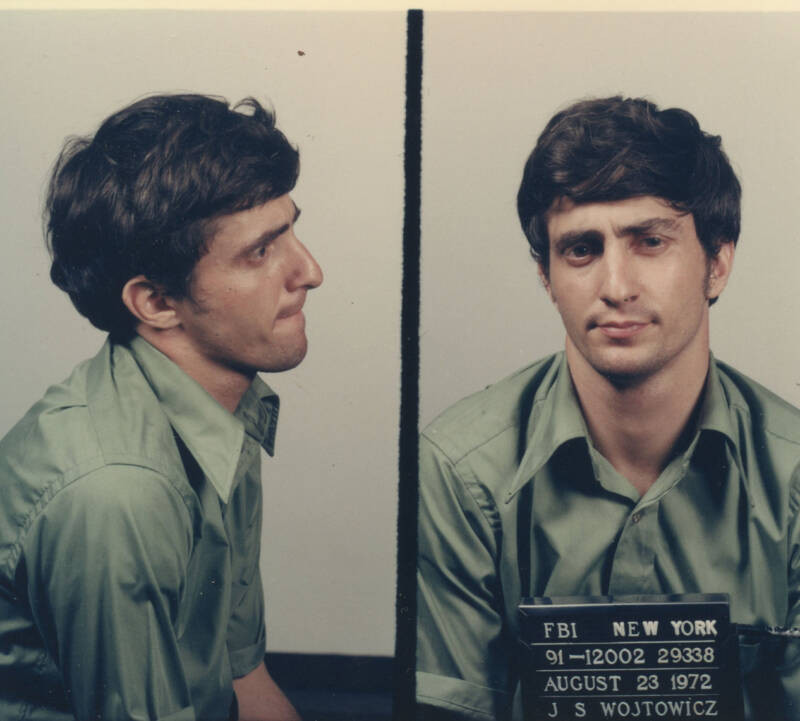 John Wojtowicz Mugshot
John Wojtowicz Mugshot
John Wojtowicz was sentenced to 20 years in prison but served only five, released in 1978. During his incarceration, he had the unusual experience of watching Dog Day Afternoon, the film inspired by his bank robbery, starring Al Pacino in the lead role. Initially, the warden prohibited Wojtowicz from seeing the film, relenting only after Wojtowicz threatened a prison riot. He ultimately viewed the movie in the company of a single guard, describing it as a “very moving experience.”
Despite the emotional impact, John Wojtowicz publicly criticized Dog Day Afternoon in a letter to The New York Times, asserting that it distorted the truth and unfairly implied he had betrayed Salvatore Naturile. He vehemently denied making any deal that led to Naturile’s death, expressing outrage at the suggestion. Wojtowicz also objected to the film’s portrayal of his first wife, Carmen, feeling it unfairly depicted her and misrepresented the reasons for their separation.
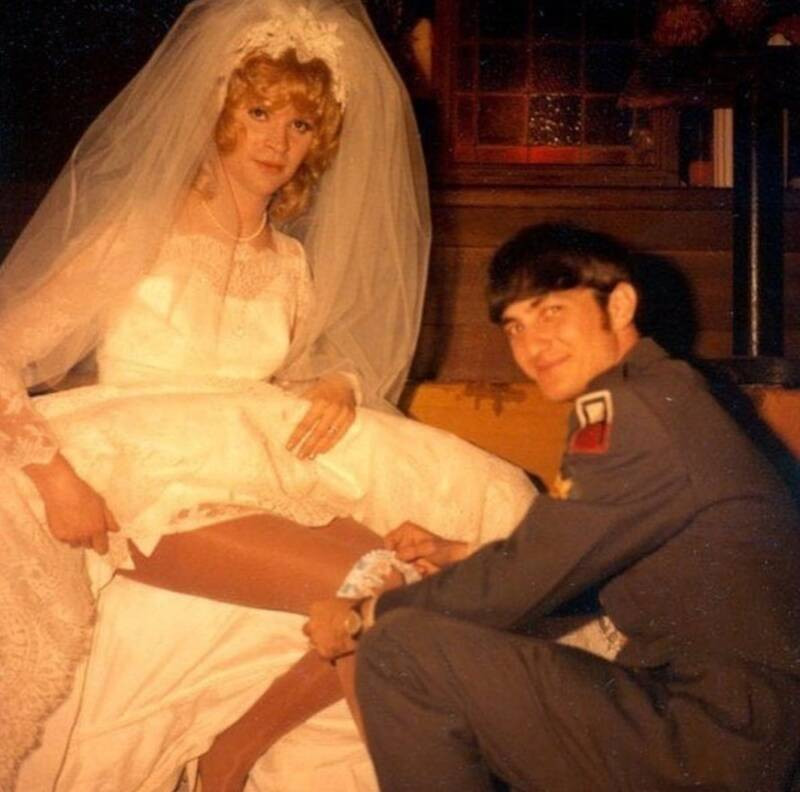 John Wotjowicz And Eden
John Wotjowicz And Eden
Despite Wojtowicz’s criticisms, Dog Day Afternoon was a critical and commercial triumph, earning six Academy Award nominations and winning for Best Original Screenplay. The film solidified John Wojtowicz’s place in popular culture, albeit through a fictionalized lens.
After his release, John Wojtowicz returned to New York and lived with his mother. Liz Eden had left him before succumbing to AIDS-related pneumonia in 1987. In a final, almost darkly humorous attempt to engage with his past, John Wojtowicz reportedly applied for a job as a security guard at a Chase Bank, famously stating, “I’m the guy from Dog Day Afternoon, and if I’m guarding your bank, nobody’s going to rob the Dog’s bank.” He was not hired. John Wojtowicz spent his later years on welfare and died of cancer in 2006. His story remains a compelling and complex narrative of a man driven to extremes by love and circumstance, forever etched in the annals of true crime and cinematic history through the enduring legacy of Dog Day Afternoon.
To delve further into true crime stories, explore the life of gangster Henry Hill and the real-life Goodfellas or the exploits of 1930s bank robber John Dillinger.
